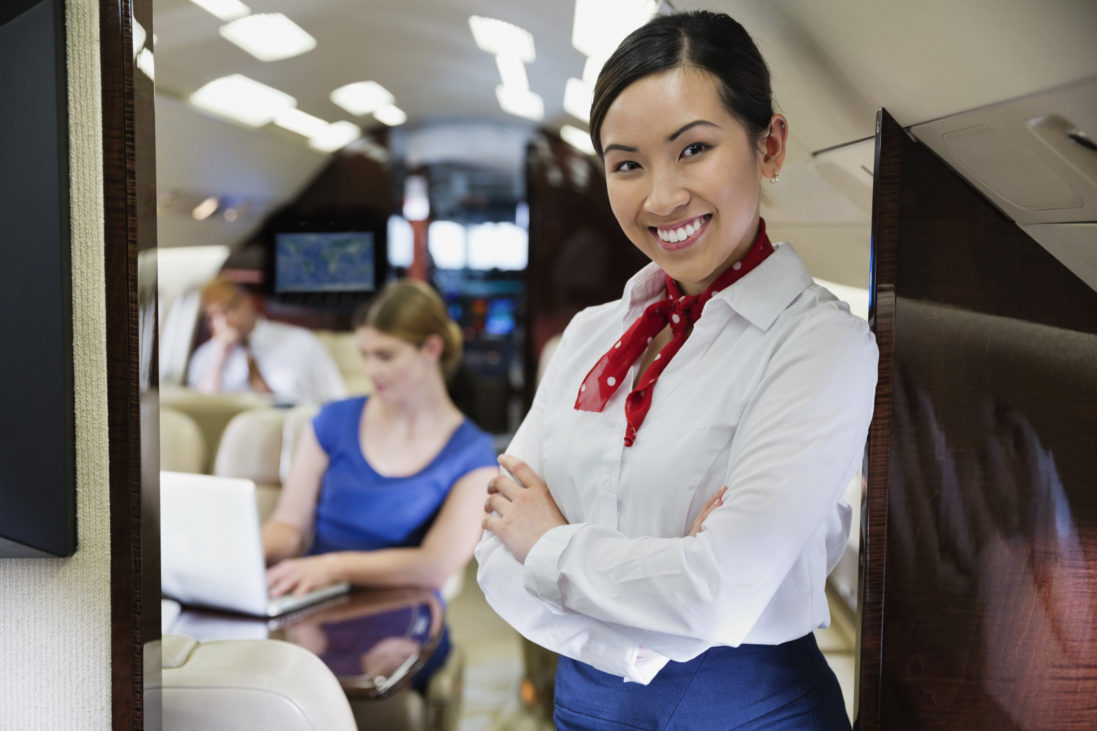
April 8, 2020
An NBAA News Hour webinar held on April 7 provided best practices for pilots, flight attendants, FBO personnel and everyone else in the supply chain of aircraft catering during the COVID-19 crisis.
Jo Damato, CAM, NBAA’s vice president of educational strategy and workforce development, moderated a panel of three inflight catering and food service experts:
- John Detloff, vice president at Air Culinaire Worldwide
- Paula Kraft, founding partner of Davinci Inflight Training Institute
- Shannon Weidekamp, chair of NBAA’s Flight Attendants/Flight Technicians Committee
Food safety has always been important, but the COVID-19 crisis is making it more so. Now, the experts strongly encourage the use of reputable aviation caterers, rather than the crew preparing food itself or ordering from local restaurants for delivery. These caterers are still providing services during the COVID-19 crisis.
In the current pandemic environment, a reputable aviation caterer:
- Provides employees with food safety training
- Is inspected by the Food and Drug Administration and local health inspectors
- Has dedicated food delivery vehicles
Although it used to be common for flight crewmembers to shop for food items or stock, Weidekamp pointed to the possible exposure to infection if crewmembers search for food or stock items in grocery stores.
Local restaurants and third-party delivery services are also not ideal for aviation catering. Food temperature is a key to food safety, as storing foods at an appropriate temperature – that is, 41 degrees Fahrenheit or below – is critical to minimizing the growth of pathogens.
Local restaurants are set up for cook-to-serve – that is, preparing food to be consumed immediately. Conversely, aviation catering kitchens are designed for cook-to-cool, with blast chillers to bring food to safe temperatures.
Other best practices to consider during the COVID-19 crisis include:
- Use gloves to handle and serve food, but be sure to use proper protocols for glove use
- Use anti-bacterial wipes on cans and packages before loading them on the aircraft
- Double provision for crewmembers; that is, order extra meals for crewmembers to eat at hotels so they aren’t taking risks with unknown carryout, hotel or delivery food options, then store the extra meals on ice or dry ice
- Communicate with other crewmembers, passengers and FBO personnel to be sure everyone understands sanitation and hygiene protocols
- Don’t go to work if you feel sick or have any COVID-19 symptoms
- Use disinfecting supplies recommended by the U.S. Centers for Disease Control and Prevention
- If you can’t find proper disinfecting supplies, check with aviation or restaurant supply companies; aviation catering companies might be able to help, too
Catering best practices for all circumstances include:
- Use disposable dishes if you don’t have proper capabilities to wash dishes on board the aircraft
- Choose FBOs with good food-safety practices, such as food safety training, use of commercial refrigerators and regular sanitation of refrigerators and ice machines
- Use ice packs, dry ice or coolers to keep food at safe temperatures
- Build a good relationship with your catering providers
“These are best practices during the pandemic but also after – this crisis is raising awareness in the industry regarding food safety and hygiene,” said Kraft.
This webinar is just one in a series of educational opportunities NBAA has planned for the coming weeks. Learn more about upcoming NBAA News Hour webinars and register.


 International Business Aviation Council Ltd.
International Business Aviation Council Ltd.